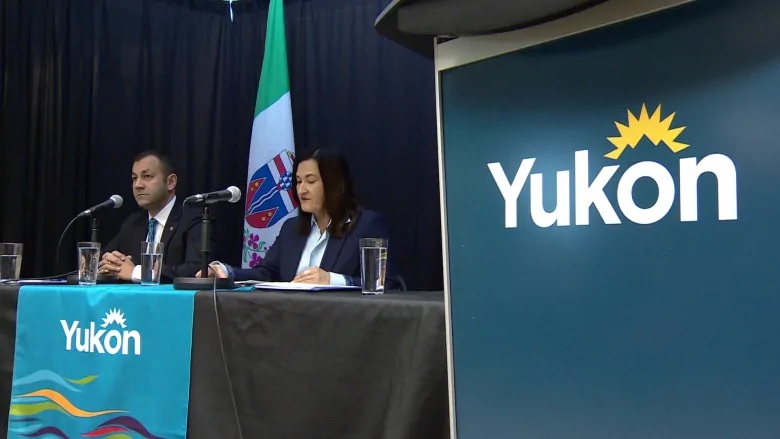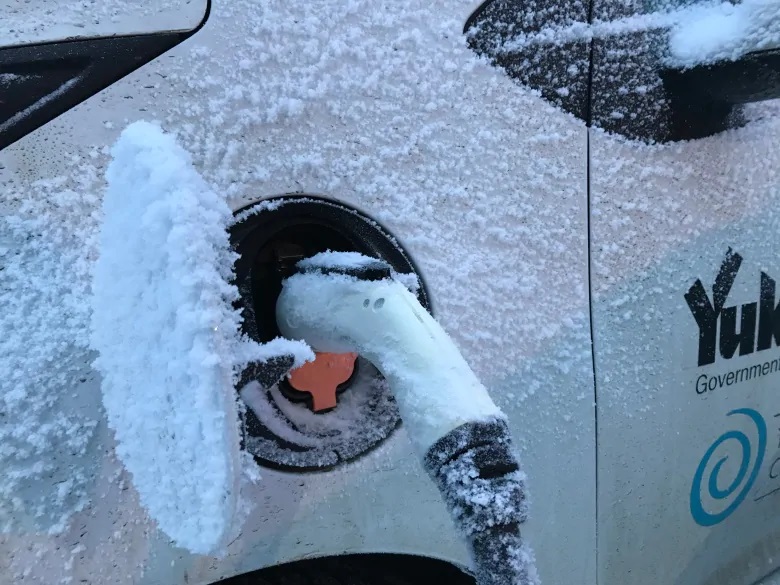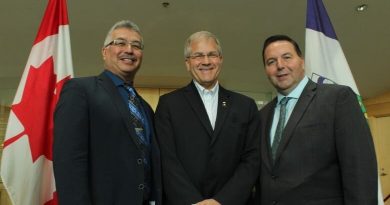Canada’s Yukon territory aims for 30% greenhouse gas reduction by 2030

A Yukon, northwestern Canada government draft strategy released Thursday to deal with what it labels a “climate change emergency” suggests looking into a future with electric car rebates, electric buses, and nuclear power, among other things.
Our Clean Future has a target of reducing greenhouse gas emissions by 30 per cent by 2030, compared to emissions in 2010.
The 142 actions in the strategy would get the territory three-quarters of the way to that target.
It’s “a target that we are confident we can achieve,” said Aletta Leitch, senior project manager at Yukon’s Climate Change Secretariat.
“We are committed to closing that gap over the next 10 years as we learn what’s working well, what can be improved, and as new technologies emerge,” Leitch said at the strategy’s announcement in Whitehorse.
The strategy’s actions will be updated every three or four years to help with that, she added.
‘6,000 or more’ electric vehicles by 2030
The strategy also aims to “ensure Yukoners have access to reliable, affordable, and renewable energy, to adapt to the impacts of climate change, and to build a green economy,” Leitch said.
The strategy focuses on the areas of transportation, homes and buildings, energy production, communities, innovation, and leadership.
According to the report, the bulk of greenhouse gas emissions in Yukon came primarily from road transportation and heating at 54 and 21 per cent, respectively.

The strategy aims to reduce the amount of diesel used for electricity generation in off-grid communities by 30 per cent by 2030.
It also aims to have 40 per cent of the energy needed for heating in the territory provided by renewable energy sources by that time.
It can vary a little depending on the amount of renewable resources available, but Yukon is already at that level, according to Shane Andre, director of the energy branch at Yukon’s Department of Energy, Mines and Resources.
However, it’s expected that there will be greater demands on the grid in the future.
The government wants to get more electric vehicles in the territory by potentially providing rebates (no amount determined yet) for electric vehicles, installing fast-charging stations, and helping owners get charging stations in their homes.
“Through these efforts, we anticipate seeing 6,000 or more electric vehicles in the territory by 2030,” Leitch said.
Shane Andre, director of the energy branch at Yukon’s Department of Energy, Mines and Resources, said the Yukon Energy Corporation is looking into how to brace for that increased demand.
Industry
The mining industry has its own “intensity-based target.”
“Taking a separate approach to mining is really important because of the boom-and-bust nature of mining and, subsequently, the volatility of greenhouse gas emissions from mining. An intensity-based target means that we’ll work to make mining more efficient regardless of how many mines are in operation or how few,” Leitch said.
The number is still preliminary, but implementing every action in the strategy could cost about $450 million over the next decade, she said.
“Our estimates suggest that the federal government could probably cover close to two-thirds of that amount,” Leitch said.
Other actions in the strategy include:
- Expanding telehealth services so people don’t have to travel to Whitehorse as much to get care, which would reduce greenhouse gas emissions.
- Offering government-funded financing upfront, as opposed to rebates after the fact, for energy-efficiency retrofits.
- Finding ways for the territorial government to work together with communities on public transit projects.
- Adding surcharges to certain items to help fund recycling operations.
The government will gather feedback via community meetings and online until Jan. 17, 2020. The aim is to release the final strategy by early next year.
Related stories from around the North:
Canada: Taxing carbon in Canada’s diesel-dependent North, CBC News
Finland: Finnish residents among world’s worst CO2 emitters by air travel, stats show, Yle News
Norway: Emissions dropping in EU, but not in Norway, The Independent Barents Observer
Russia: Aging nickel plant in northwest Russia due to close in late 2020, The Independent Barents Observer
Sweden: Swedish industry group asks government’s help in shifting away from fossil fuels, Radio Sweden
United States: Alaska’s largest city unveils climate plan calling for 80 percent emissions cut by 2050, Alaska Public Media



